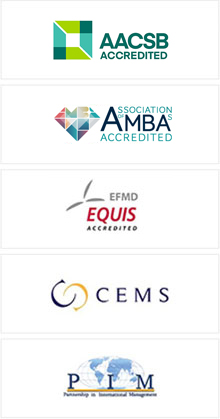At meetings, speech helps to build authority relationships
13.03.2012
Meetings are not just a forum for conveying information, but also a context for constructing authority relationships between participants. The speech of those attending meetings contains tiny linguistic signals that reveal a speaker’s attitude to the subject being discussed and what he or she assumes the others know about it.
This theme is explored in the research carried out by Marjukka Lehtinen (MA) for her doctoral dissertation. The results show that speakers use the Finnish particles –han/hän to suggest how listeners should interpret what they are saying. These particles can show that what is being discussed is self-evident and common knowledge.
According to the results of the research, speakers use -han/hän at meetings to steer the discussion and activities in the direction they want, to sound authoritative, to highlight intellectual and hierarchical relationships, and to link the subject of discussion to other aspects of the organisation and to matters of strategy.
Apparently, there is continuous negotiation during meetings regarding what participants are assumed to know: is the information common knowledge or self-evident, or common knowledge from the moment the enlightened participant makes it so? Participants also show who has the right at any one time to judge or evaluate the subject of discussion and how the issue relates to the work of the organisation.
Making the strategy comprehensible
Participants at meetings use their positions of authority to give opinions and communicate on their units’ activities and the allocation of resources as well, as what is going on in the workplace. Parties in the know ensure that the others present have sufficient information in order to consider and discuss the subject in hand or that their own views gain importance. In this way everyone builds a common understanding of the subject.
Lehtinen’s dissertation brings a new perspective to the study of strategic practices at the micro level. The research indicates that people at meetings use their opinions and communications to refer to strategic issues. Operative employees do not do their work in isolation from the rest of the organisation: instead, the aims and objectives of the organisation are reflected in their work. The study shows that human agency and making the strategy important are everywhere present in the organisation, and at operative level too.
Public examination
Lehtinen’s doctoral dissertation Episteemisen auktoriteetin ja yhteisen ymmärryksen konstruointi kokouskeskustelussa. Fokuksessa -hAn-lausumat (Constructing Epistemic Authority and Shared Understanding in Meeting Talk. A Focus on Utterances Containing Finnish Clitic Particle –hAn) in the subject area of Business Communication will be examined at the Aalto University School of Economics on Friday 30 March 2012 at 12:15 (Chydenia Building, Stora Enso Hall, 2nd floor, Runeberginkatu 22–24).
The examiners will be Docent and Senior Lecturer Pikka-Maaria Laine (University of Eastern Finland, University of Lapland) and Professor Esa Lehtinen (University of Vaasa). The custos will be Professor Johanna Moisander.
Media representatives may request free copies of the dissertation from the Communications Unit of the Aalto University School of Economics; email viestinta-econ [at] )aalto [dot] fi or tel. +358 (0)50 566 5673. The dissertation may be ordered by email to: toolo [at] )ayy [dot] fi
Further information: Marjukka Lehtinen (marjukka.lehtinen [at] )aalto [dot] fi ), tel. +358 (0)40 869 7753


